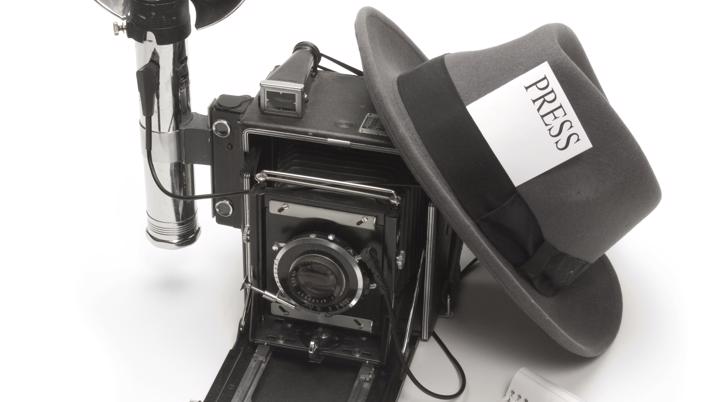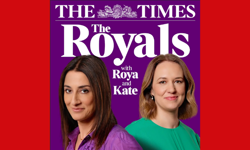
The Daily Mail's reporting course started this month (August). Seven of the brightest young journalists from post-graduate courses will spend two weeks at Northcliffe House learning about the Mail, its style, its ways and what will be expected of them. They will then be cut loose for a few months to learn their trade on big regional newspapers. I am privileged to be one of their trainers and also one of their recruiters. So, what do we look for that allows us to whittle 900 plus applications down to seven?
First, they must have the standard skills - shorthand at 100wpm, media law, government, how Freedom of Information works etc.
Our craft is 40% skill, 60% attitude.
Sniffing out stories
The news-editor insists a driving licence is also essential. Second, they must have evidence, usually in a portfolio, that they can write well and that they can bring in original stories. Merely commenting on the issues doing the rounds on Google or reviewing concerts for the course newspaper is nowhere near enough. They have to have shown initiative. The trainee who, barely out of her teens, reported on the townships of South Africa for a year was definitely taken seriously. The trainee with a portfolio of 90 national newspaper bylines, including front-page stories from the Telegraph and the News of the World, went straight on to the shortlist. The trainee who discovered which £21,000-a-week yacht was hosting David Cameron on the Turkish Riviera, just after the Tory leader had portrayed himself as a bucket-and-spade stay-at-home kind of family guy on a Cornish beach, was worth a second look.
There may have been much talk about the demise of the craft of subbing but try telling that to the Sun.
Character traits
This should bring the shortlist down to about 40. So then we look for those elusive qualities - character, attitude, hunger, motivation - that are particularly hard to pin down in an interview. Are they robust enough for the newsroom? Are they self-motivated? How will they react when sent to track down a rogue celebrity in an unfamiliar city or be dispatched to interview frightened prostitutes on the streets of Ipswich?
I take the view that almost anyone with a decent grasp of the language can be trained to find and write stories. Our craft is 40% skill, 60% attitude. Who hasn’t come across a potentially great hack who under-achieved because of his reluctance to put in the extra leg work or his fear of learning new skills?
I also help run the Telegraph's training course. It would add entrepreneurial journalism and multi-media skills to its list. Up until recently, we also recruited for the Sun's subbing course. There may have been much talk about the demise of the craft of subbing but try telling that to the Sun. A feel for the language, grammar, punctuation, imagination, broad general knowledge, brevity, story-telling and headline writing, would all be at the top of its list.
Up to now, journalism courses have provided all of these skills pretty well. The Press Association foundation courses in Newcastle and London and those delivered at City and Cardiff Universities and Goldsmiths, among others, have a very good track-record in shorthand, law, solid journalism and recently they have added multi-media skills to the mix. But what extra skills will the journalist of tomorrow need?
This was the subject of a Westminster Media Forum in London in the spring where one of the speakers was my colleague, Tony Johnston, who heads up Press Association Training. He puts enterprise and numeracy high up the list.
“Increasingly we are going to have to teach journalists to be more entrepreneurial in their outlook, thought processes, and the way they treat content.
The massive amount of information supplied to the Telegraph on MPs' expenses is an example of the need for diligent data processing and editing skills.
Data analytics
“Certainly they are going to have to become much more numerate than they are today if we are ever going to be able to maximise the amount of freely available data content.
“Not only will we have to get the skills to find that data, we are going to have to be able to interrogate it, visualise it and mash it too.”
The recent WikiLeaks stories illustrate this. Publish 92,000 classified documents on your website and you will get little public reaction. Have journalists crawl over the information, excavate the nuggets and do a first-rate editing job, as the Guardian and New York Times did, and you have a compelling story on the Afghanistan War. The massive amount of information supplied to the Telegraph on MPs' expenses is another example of the need for diligent data processing and editing skills - all with a keen journalist's eye.
Brighton-based media consultant Andy Drinkwater believes journalists also need to learn the skills used by the marketing and PR departments that they have traditionally despised.
He argues that the PR industry has a much better understanding of audiences and how to reach them than many newspaper companies and their journalists.
"Most PR campaigns take a multi-channel approach rather than one big hit through a mass medium. Journalists need to quickly understand how to apply that to their own role. This will mean acquiring a whole new raft of skills including the use of personal and social networks, aggregation sites and blogs both to publish and gather the news.”
He adds: "Reporters in particular are going to have to understand that little screen in front of them is more than a word processor and search engine but the gateway to their local communities.”
Drinkwater runs courses where he sets journalists the task of finding genuine stories using social networks - and regularly turns up a crop for publication.
What’s changed is the number of digital platforms and media formats that journalists are now writing for.
Widening the net
Over in America, Northwestern University's Medill School of Journalism is a pioneer in bringing in recruits with a non-traditional background - particularly programming and computer science. Its director of digital innovation, Rich Gordon, believes a big part of the key for the future of journalism is to attract people who don't fit a traditional profile. He is particularly keen on programmers, game developers and data analysts. He says: “There are all kinds of people with skills that are now clearly relevant to journalism who have not historically looked at that as a place to exercise their interests."
Combining the traditional skills and inquisitive nature of the journalist with the technical skills of the computer programmer or the design skills of the graphic artist, is certainly an attractive proposition.
David Rowell, a former daily newspaper editor and now Johnston Press’s development executive, is someone who believes the multi-channel all-rounder will be the key to the future. The ideal journalist, he says, should be able to write, with an NCTJ or equivalent qualification; take pictures (still and video); write headlines for print and web and edit copy professionally. Rowell also says journalists need to be website literate, understand the needs of search engine optimisation and be multi-channel aware - knowing what story suits what type of media and at what stage of the publishing process it should go to each of the platforms.
It is difficult to disagree with any of this. Journalists should certainly come from a range of backgrounds and have a variety of specialist skills and interests. But the essence of the job remains the same – to gather information and distribute it in a compelling, interesting, entertaining and accurate way. There may be different routes to the market now, we may have to understand technology and databases better, but this has not radically changed the art of story-telling.
Media consultant and digital guru Graham Lovelace agrees. He says: “Tomorrow’s journalists will require all the skills and knowledge that I learnt 26 years ago: effective news and feature writing, sub-editing, law, public affairs and – even in this gadget-obsessed world – shorthand. What’s changed is the number of digital platforms and media formats that journalists are now writing for, everything from Twitter feeds (essays in 140 characters) to long-form web pages with embedded hypertext links and content optimised for search engines, to capturing, editing and uploading video clips and reports.
“The basic mission is the same as ever: gathering the facts and telling the story as succinctly and accurately as possible.”
Well said. The final words go to Mike Hughes, formerly executive editor of the Birmingham Post and Mail and now owner of MHmediaadvisers: “The most important new skill journos must add to their arsenal? Attitude.”
So there you have it. The skills tomorrow’s journalists will need are an ability and hunger to gather the facts, to tell the story as accurately and succinctly as possible and to have a first class attitude. Sound familiar? The Daily Mail, perhaps unsurprisingly, appears to have got it right.
The Modern Journalist’s Toolkit
Essential
Writing and language skills
- Excellent grasp of the language (punctuation, spelling, grammar, pace, the ability to write crisply, cleanly and tightly)
- Complete knowledge of style
- Obsession with accuracy
- Intro and story construction skills
Sharp news sense
- Understanding of what the audience is interested in
- Knowledge of what is topical
- Knowledge of potential sources of stories
- Ability and enthusiasm to bring in stories
- Excellent general knowledge
- An inquiring mind
People skills
- Ability to make people open up and talk
- Excellent contacts
- Ability to structure a face to face interview
- An effective telephone manner
- Confidence
- Willingness to be a team player
Technical skills
- Shorthand
- Ability to interpret agendas, databases, official documents etc
- An understanding and hands-on experience of media technology
- Understanding of social media, how it works and how to use it to find stories, carry out research and make contacts
- Driving licence
- Thorough understanding of media law
- Knowledge of the Government and the EU
- Full knowledge of how to use Freedom of Information
- An understanding of ethics and appropriate behaviour
- Ability to identify picture and graphic opportunities
- Numeracy
- Entrepreneurial skills
Attitude
- Energy and willingness to work long and unsocial hours
- Resilience and tenacity
- Enthusiasm to stay informed about the news agenda, your company and your industry
Desirable
- Ability to write features, cover sport and business and write editorials
- Ability to supply pictures and video
- Ability to edit video
- Ability to create graphics digitally and for print
- Editing, subbing, design and production skills
- Marketing and PR skills
- Ability to speak another language












